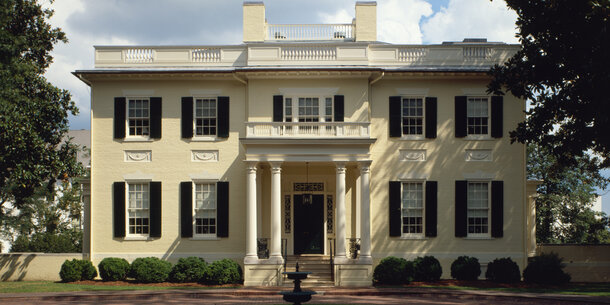Voters in Arizona, Michigan, and Washington State will head to the polls Tuesday for their local primaries. But the choices on the ballot will be limited by an uncomfortable truth about American politics: The cost of campaigning is so high that many Americans don’t even consider running for public office. The exorbitant price tag forces those who do run to spend much of their time and energy attracting wealthy donors.
None of that is good for democracy. But it’s not permanent, either. Some local and state governments are making changes that reduce the power of big money in politics. In fact, the elections on August 5 include a vote on a critical program that does just that.
In Seattle, voters will consider Proposition 1, on whether to renew funding for the city’s 10-year-old Democracy Voucher Program. If passed during the primary, the program would continue to be funded for another 10 years. The program made running for mayor, city council, and city attorney more accessible, broadening the selection of candidates and the donor pool.
Here’s how it works: Before each local election, the city gives every resident four democracy vouchers worth $25 each to be distributed to the voter’s preferred program participant. Candidates can receive the money and spend it on their campaigns once they meet qualifying program requirements.
Seattle voters approved the Democracy Voucher Program in 2015. Since then, the program has made elected officials less dependent on large contributions from a few wealthy donors. Contributions over $250 have gone down 93 percent in local elections. Meanwhile, the number of Seattle residents using vouchers has more than doubled, from 20,727 in 2017 to 48,071 in 2021. This means that candidates can spend more time with more of the people they hope to represent, building relationships and hearing their concerns.
The program has also helped elect more women and candidates of color. One study found that before the program’s inception, people of color and women made up 30 percent and 50 percent of the pool of winning candidates, respectively. These numbers ballooned to 58.3 percent and 66.7 percent for people of color and women after the program’s implementation. Nikkita Oliver, candidate for city council in 2021, told The Seattle Times that the program allows candidates “without major connections to wealthy communities” to run, “open[ing] up democracy to many more people.” Additionally, the program has boosted the percentage of Seattle voters of color making donations to local campaigns, from less than 1 percent in 2013 to 8 percent in 2021. Gina Owens, a Seattle resident and first-time campaign contributor via vouchers, said, “I always had a problem using my finances for campaigns, when I have to take care of home.” Now, she continued, by using the program, “people like me can contribute in ways that we never have before.”
Seattle’s Democracy Vouchers Program has delivered tangible benefits for the city, and voters should support it Tuesday. Its successes mirror the experiences of the 40 state and local governments across the country that have enacted various kinds of public campaign financing.
New York State, for example, matches small donations from in-district donors between $5 and $250 with public funds. Only just completing its inaugural run in 2024, the program has already made significant waves in state campaign financing. Large donations of $1,000 or more decreased from 70 percent or more in recent elections to 38 percent in 2024. At the same time, the number of New Yorkers giving small-dollar, in-district donations increased dramatically, from 5 percent of overall funding in recent cycles to 45 percent in 2024.
The ultra-wealthy’s influence over politics isn’t new, but it has reached unprecedented levels in recent decades. This summer, Seattle voters have the opportunity to vote for Proposition 1 and ensure that the city will continue empowering candidates and small donors alike.
In 2023, Pew Research Center found that 85 percent of U.S. adults agree with the description “that the cost of political campaigns makes it hard for good people to run for office.” The poll showed this was true for equal shares of Democrats and Republicans.
There’s no doubt that Americans see the problem. They can fix it, too, with Seattle, New York State, and others as models for effective reform.
Cinthia Illan-Vazquez is the Executive Director of the Washington Bus, a youth-led movement building organization and a member of the Washington Voting Justice Coalition.
Celina Avalos Jaramillo serves as the Advocacy Campaign Strategist in the Brennan Center’s Elections and Government Program, focusing on issues related to election administration and money in politics.






